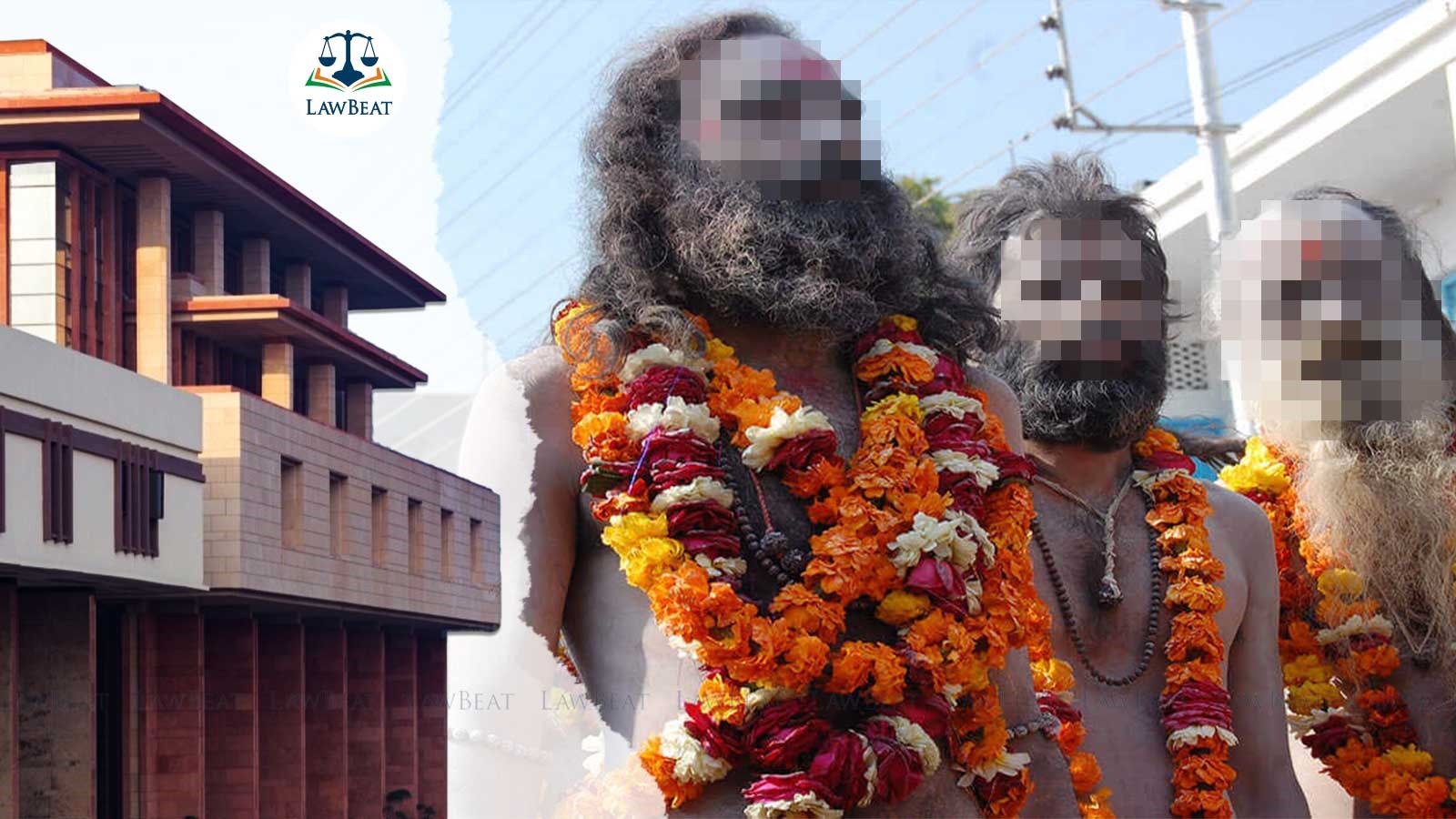Naga Sadhus Lead Life of Detachment, Cannot Claim Property Rights In Their Name: Delhi HC

Avinash Giri, a successor of Mehant Shri Naga Baba Bhola Giri, filed a writ petition claiming that the disputed property was possessed in the name of Mehant Shri Naga Baba Bhola Giri Chela Naga Baba Shankar.
The Delhi High Court, recently, held that Naga sadhus, as devotees of Lord Shiva, are meant to lead a life of complete detachment from worldly affairs, making their pursuit of property rights inconsistent with their spiritual beliefs and practices.
The bench of Justice Dharmesh Sharma held, “Naga sadhus are devotees of ‘Lord Shiva’ and they are ordained to live a life of complete detachment from the worldly affairs, and therefore, seeking property rights in their names does not conform with their beliefs and practices”.
Giri represented by Advocate Kamlesh Kr. Mishra asserted that Mehant Shri Naga Baba Bhola Giri had possessed the property since 1996. The Khasra Girdawari documents indicated that the property, including the Shrine of Naga Baba Bhola Giri, was in the possession of his successor, Avinash Giri. Furthermore, Giri contended that he had held possession of the property well before the 2006 deadline established by the Delhi Special Laws Act.
The Delhi Development Authority (DDA), represented by Additional Standing Counsel Udit Malik, asserted that the disputed property was within the Revenue Estate Bela, which is government land allocated to the Delhi Improvement Trust, the predecessor of the DDA, under the Nazul Agreement dated March 31, 1937.
The court noted that the relief sought by Giri in the petition had already become moot, as their representation dated February 23, 2023, addressed to the District Magistrate (Central) for demarcation of the land in question under Section 28 of the Delhi Land Revenue Act, 1954, was rejected by the SDM, Sub-Division Kotwali, on April 19, 2023. The rejection was based on the fact that ‘all villages falling under Kotwali Sub Division have been urbanized/nazul land and the revenue records of the villages are not available with the office’, the court added.
“The petitioner has no right, title, or interest to continue to use and occupy the subject property”, the court noted. The court observed that he was a clear trespasser, and the fact that he had been a cultivator for over 30 years did not grant him any legal right, title, or interest to continue occupying the subject property. The court opined that Giri appeared to have constructed two rooms with a tin shed and other amenities on the side, in addition to a shrine for the revered Baba, who died in 1996. However, there was no evidence on record to suggest that the place held any historical significance or was dedicated to the public for worship or offering prayers to the deceased Baba.
The court noted that the Master Plan Delhi-2021 envisaged the rejuvenation of the Yamuna River through various measures, including ensuring adequate water flow by release from riparian states, refurbishment of trunk sewers, treatment of drains, sewering of unsewered areas, treatment of industrial effluent, recycling of treated effluent, and removal of coliforms at sewage treatment plants, along with creating ecological balance by planting trees. The property in question was intended for the larger public interest, and the petitioner could not claim any vested rights to continue occupying and using it.
“Since the petitioner has placed on the record no iota of evidence that the shrine is a place of historic significance and devoted to the public at large, the DDA is not enjoined upon to give any notice to the petitioner”, the court observed. The court held that the DDA was not required to issue any notice to Giri. Furthermore, the fact that the Religious Affairs Committee, established by His Excellency the Lieutenant Governor of Delhi, has not yet reviewed or approved the demolition does not hold any weight since the shrine was private, not public.
Additionally, the court observed that Naga sadhus being devotees of Lord Shiva are ordained to live lives of complete detachment from worldly affairs. Thus, seeking property rights contradicts their beliefs and practices.
Furthermore, the court noted, “We might find thousands of Sadhus, Babas, fakirs or Gurus in different parts of the landscape and if each one is allowed to build a shrine or samadhi sthal on a public land and thereby, continue to use it for personal gains by the vested interest groups, that would lead to disastrous consequences jeopardizing larger public interest”.
Accordingly, the court dismissed the petition.
Case Title: Mahant Shri Naga Baba Bhola Giri v District Magistrate District Central And Ors (2024:DHC:4560)
